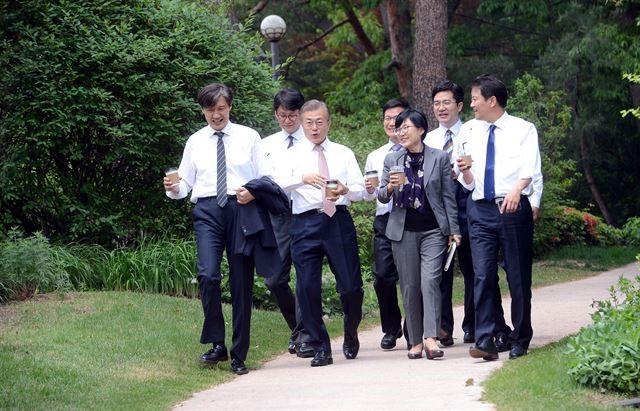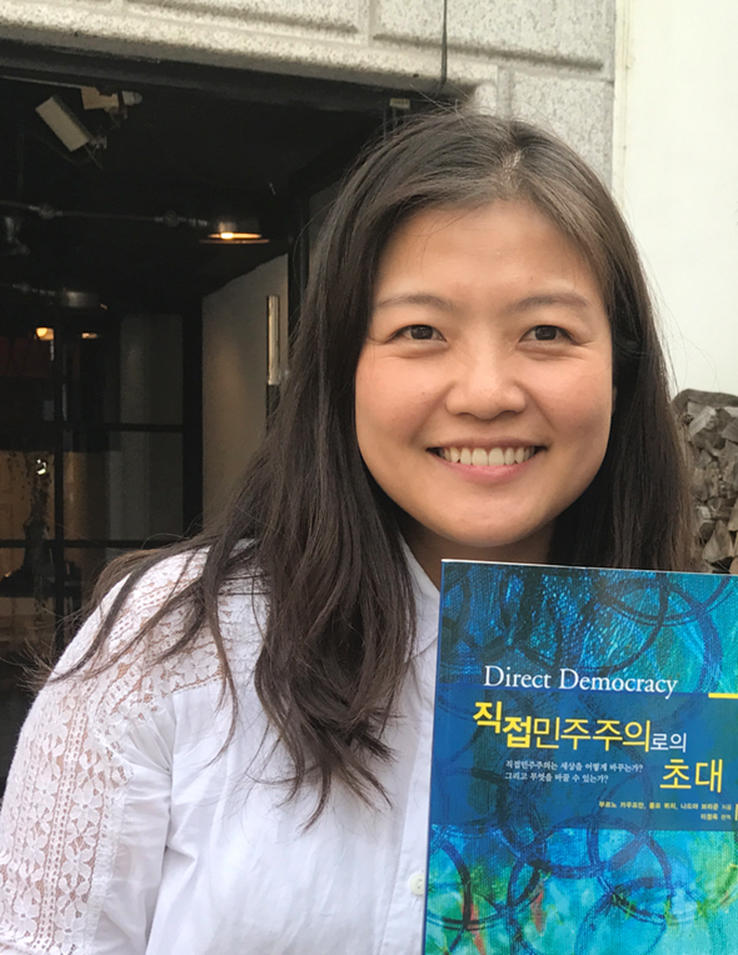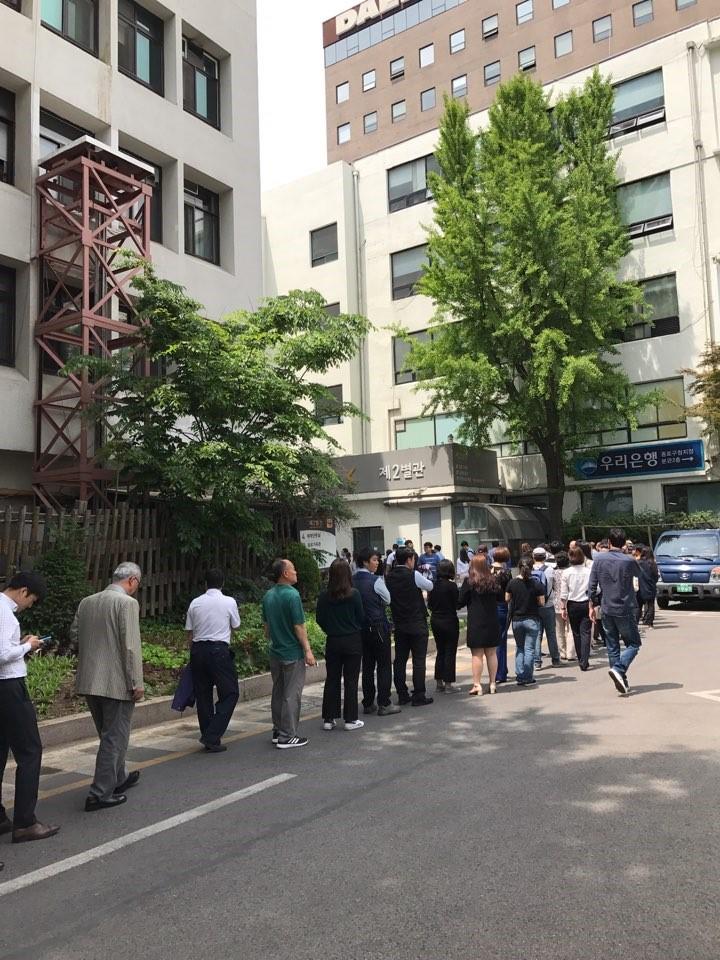
A new day dawns for South Korea’s democracy

The election of human rights activist Moon Jae-in as president of South Korea has ushered in a new era for democracy. It took hard work and commitment on the part of South Korea’s citizens.
Their dedication has paid off so far. Right away, Moon started to remodel the role of the presidency by taking a simple oath at the National Assembly instead of organising an expensive inauguration ceremony like the new presidents in the United States or in France traditionally do.
He also selected his key aides among experienced civil society experts. Instead of withdrawing into the Blue House (the official seat and residence of the head of state) he used simple administrative office buildings for lunches and coffee breaks with his team.

After lunch he and the secretaries grabbed a cup of coffee and took a walk together across a public park – a rare occurrence in modern Korean history – that marks a new era for democracy in South Korea.
Today the dark days of the former president, Park Geun-hye, seem far away in the past. During Park’s time in office, which ended abruptly with her impeachment and arrest in March, there was no such thing as a face-to-face meeting with cabinet members.
Park often locked herself into the Blue House, where she had lived as the daughter of a military dictator during her childhood, and made herself unavailable to the nation.
We, the Koreans are proud and excited about the changes being made. Everybody is discussing the problems of the recent past and the many opportunities ahead: On social media, politics and democracy have never before played such an important role.
This text is part of #DearDemocracy, a platform on direct democracy issues, by swissinfo.ch.
Thirty years ago, millions of Korean people demonstrated for the end of military dictatorship and the introduction of a basic democracy- a struggle that cost many lives. In the end, activists won the fight to remove the military from power, but they paid a high price.
Almost three decades later, millions of citizens took to the streets once again. The ruling Conservatives and their president had undermined trust in all state institutions by enriching themselves through the country’s biggest companies like Samsung and Lotte.
Democracy at stake
Our hard-working people started to understand that democracy in South Korea was at stake and the continuous scandals under president Park angered many. Vehement protests in Seoul other cities across the country, achieved through peaceful means, paved the way for the first presidential impeachment in the history of Korea.
The only weapon the citizens had was the right to vote. From April 29th to May 9th, including election day, the average Korean citizen could have taken extended holidays. But most of us used the free days to make an extra effort to change the country.
Thousands of citizens got up early to cast their vote at the Incheon International Airport.
By the end of the day, almost 80% of eligible voters had gone to the polls, the highest turnout in the history of our democracy. But it took time and patience.

Selfie
I tried twice to vote at the polling station near my office at the Korea Democracy Foundation in central Seoul on May 6: but both times the queues were simply too long with hundreds of people waiting to enter the polling station.
I finally succeeded the next day. I took a “I voted” selfie and shared it through the Korean chat application SNS. Millions of us did so to remind our friends about the election and I saw many older voters doing the same. In fact, some of my friends complained about all the messages they received from everyone they know. Setting a new record, more than 25% of all eligible voters also cast their ballot in advance.
In another first, “fact-checking” applications appeared to counter the rumours spread by the remaining supporters of the impeached president.
A cable TV channel also ran a real time “fact check” website where people could verify whether something said by a candidate was true or not. Up to 2.4 million users simultaneously visited the website.External link
For the first time in my life, I carefully read through the official voter information brochure. Many local debates were broadcast live on Facebook and via youtube. Korea’s democracy went truly digital in the final days of the campaign.
On election day, May 9, it became clear that most Koreans wanted to look ahead, leaving behind the surreal political and social dramas of the former presidency.
Opening the door
With our vote, we have opened the door to the Blue House, which has been closed ever since the first elected president moved in 29 years ago. As an active citizen and a supporter of democracy, I am very glad that the new President Moon really respects the idea of citizenship and promises to support it.
But we must give him time to clean up the unfair justice system, which has hindered progress in the past. Last but not least, I hope that the newfound interest in politics and democracy will live on. Now we have the genuine opportunity to build a modern representative democracy in South Korea, where votes count not just on election day, but where the voices of citizens are heard every day. For this we will need to invest heavily in a participatory infrastructure.
The views expressed in this article are solely those of the author, and do not necessarily reflect the views of swissinfo.ch.

In compliance with the JTI standards
More: SWI swissinfo.ch certified by the Journalism Trust Initiative





























You can find an overview of ongoing debates with our journalists here . Please join us!
If you want to start a conversation about a topic raised in this article or want to report factual errors, email us at english@swissinfo.ch.